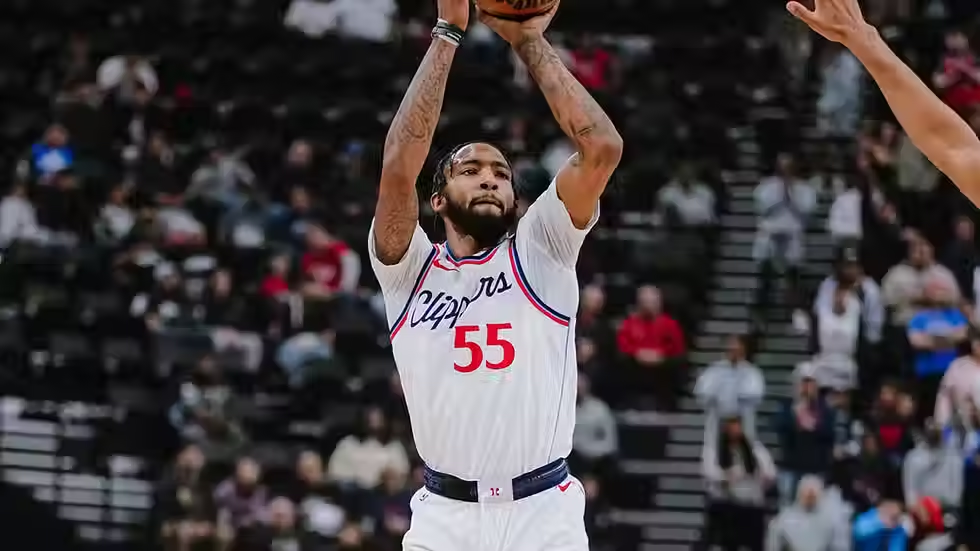San Francisco Giants Utilize Loophole in CBA to Avoid Paying J.D. Davis' Full Salary
- Brendan Bell

- Mar 15, 2024
- 4 min read

While professional sports franchises garner more public attention, we sometimes forget that many of them desire to operate like any other "normal" business does. While the dollar figures on an team's balance sheet might look different than your local Mom and Pop, the overarching goal is the relatively similar: maximize revenues while limiting expenses.
The San Francisco Giants recent release of third baseman J.D. Davis highlights this notion. After the club inked All-Star and 4-time Gold Glover Matt Chapman to a 3-year/$54 million contract with an opt-out clause, Davis' role on the Giants roster was severely compromised. After unsuccessfully attempting to trade Davis and his $6.9 million salary, the club placed him on unconditional release waivers. While seeing someone of Davis' caliber being placed on waivers this late in spring training is somewhat odd, player get waived all the time without much notoriety. So what's the big deal here? Well, the Giants found a loophole in MLB's Collective Bargaining Agreement (CBA) to save a substantial amount of money.
When MLB and the MLB Players Association (MLBPA) agreed on the current CBA in March 2022, 1-year contracts for arbitration-eligible players would be fully guaranteed. This was an important deviation from previous CBAs and was a big win for the MLBPA. Essentially it prohibited teams from backing out of arbitration contracts after they were agreed to. Arbitration eligible players already face the possibility of not being "non-tendered" which is effectively being cut. But with this win for the MLBPA in the 2022 CBA negotiations, contracts that had been agreed to were supposedly guaranteed for the players. However, this turned out to be not entirely true for the select few players who go to an arbitration hearing.
When the Giants placed Davis on waivers this week, they took advantage of a loophole that allowed them to save nearly $6 million on his salary. Over the offseason, Davis won his arbitration hearing against the Giants to receive $6.9 million instead of the club's filing at $6.55 million. But because the provision in the CBA specifically does not guarantee arbitration salaries arrived at through an arbitration hearing, the Giants were not obligated to pay out all of the $6.9 million owed to Davis. Instead, the club only was on the hook for just 30 days of termination pay amounting to a little more than $1.1 million.
Was this the Giants plan all along? It's hard to know and speculating the club's motives is somewhat irresponsible. It's worth noting that Matt Chapman remained on the free agent market into March and the dollar figure he eventually signed for with San Francisco came in a lot lower than many expected. Therefore, it's hard to ascertain that the Giants always viewed Chapman as a replacement for Davis throughout the offseason. Nonetheless, Davis' agent and the MLBPA will certainly have an issue for the way this situation was handled.
The Giants, like many other teams, have utilized the “file-and-trial” approach where all negotiations stop after the deadline for clubs and players to exchange salary figures to be presented at a hearing. Its purpose is to be a deterrent to negotiations reaching the hearing stage. Davis said last month that he would have happily accepted the Giants’ filing figure of $6.55 million prior to the hearing. But the team was not willing to reopen negotiations after the exchange of numbers. To then go to arbitration, lose the hearing, and then release the player without paying full freight undoubtedly isn't a good look for the Giants in retrospect.
While this particular predicament is only applicable to a select few players moving forward, it's certainly something the MLBPA will look into as they prepare for the next CBA negotiations. Even with its faults, the arbitration process is overwhelmingly beneficial in pushing player salaries up over time. However, with this loophole, it creates an avenue for teams to skirt around guarantees stemming from salaries determined by arbitration hearings.
Davis has subsequently signed a 1-year/$2.5 million contract with the Oakland Athletics, so he comes out around $3.3 million worse off than he would've been if the Giants honored his original contract. Nothing the Giants did was against the rules. The Giants abided by the letter of the law of the collectively bargained agreement that the players knowingly and willingly signed two years ago. In the move, the Giants shaved off nearly $6 million in payroll obligations and now stand roughly $13 million underneath the first luxury tax threshold of $237 million.
This situation goes to show how important every detail of the CBA can be. The media and fans often grow tired whenever CBA negotiations drag on, but there is a reason why they do. Each side goes to extensive lengths to protect themselves against unfavorable scenarios. The MLBPA is the strongest player union in all of sports, so I bet they will have this situation in mind when the current CBA expires following the 2026 season.
Brendan Bell is a 1L at Arizona State Law School and is the Southwest Regional Rep on Conduct Detrimental's Law School Student Board. He can be followed on Twitter (X) @_bbell5








